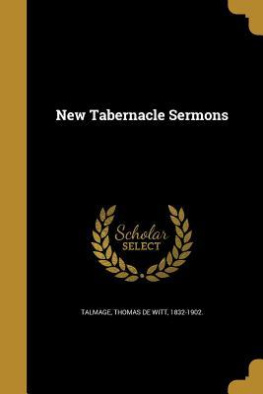Dedication.
To T. L.
Dear
Some time ago, during a conversation about Basutoland, you suggested that I should write an account of the country and its inhabitants, and were kind enough to give me many valuable hints as to how I should collect and arrange my information.
As you know, we came out to South Africa in January, 1891, and went up to Basutoland in the following April.
We both liked the country from the first, and I soon became interested in the people. To enable myself to understand them better, I began to study the language, which I can now speak fairly well.
The fact of my husband being a Government official gave me many opportunities of acquiring information, and, as we have been moved about from one station to another, having had six "homes" in the ten years of our sojourn there, I have naturally seen a considerable portion of the country, and come in contact with many different specimens of the Basuto race. I have made a practice of visiting the different villages, and of seeing as much as possible of the inner life of the people, with the result that I have at length put my impressions on paper, in the hope that they may be found of some value to those who take an interest in native habits and customs.
For the kind help and encouragement I have received from you, I am deeply grateful, and hope you will allow me to dedicate to you this small volume, which, without your aid, would never have been written.
To those who have most kindly helped me with information, I tender my grateful thanks.
Minnie Martin.
CHAPTER I. OUTLINE OF BASUTO HISTORYMOSHESHUELETSIELEROTHOLISCENERYCLIMATE.
Were I to attempt to give a complete history of the Basuto I should fail utterly, for my own personal knowledge of South Africa only extends over the last ten years. Although several books have been written on the subject by missionaries, the Basuto as a nation do not seem capable of giving one much reliable information beyond the time of Tokoana Makhautha, the grandfather of Mosheshue.
Here and there through the country old men are to be found who possess marvellous stores of knowledge, but how much it can be relied upon, would be a question impossible to answer satisfactorily.
My readers will, I hope, therefore content themselves with a brief sketch of Basuto history from about the middle of the eighteenth century.
Tokoana Makhautha was chief at that time of a considerable tract of country in and around Witsies' Hoek. He seems to have been a stern, ambitious man, with little of the "milk of human kindness" in his character.
He was succeeded by his son Mokhatchane, who, however, possessed little power, and who, when his children were come to manhood, installed his son Mopeli at Witsies' Hoek, while he himself followed the fortunes of his favourite son, who as a youth bore the name of "Lepoko" (a quarrel), because he was born during a time of strife, but who afterwards assumed the name of Mosheshue.
From the time of his abdication old Mokhatchane seems to have led a more or less retired life at Thaba Bosigo, though no doubt he exerted a certain amount of influence over Mosheshue, and was treated with considerable respect. Filial obedience is a very strong trait in all Basutos.
Mosheshue began his "reign" by subduing one or two small tribes, and with these and his original followers betook himself to an almost impregnable mountain in the centre of the Lesuto, called Thaba Bosigo (the Mountain of Night), where he built his village, fortifying it so as to make it a perfectly secure stronghold. Here he established his chieftainship, and, after various wars, reverses and successes, conquered or dispersed all rivals, and soon succeeded in becoming Paramount Chief of the greater part of Basutoland, or, as it ought more correctly to be called, the Lesuto.
Mosheshue was possessed of great ambition, singular courage, and firmness; but acts of brutality or injustice have never been coupled with his name. Judging from all accounts, he seems to have been a bright exception to the chiefs of that time. His ambition was to rule the Lesuto as its undisputed Sovereign, and he saw that to do so he must win not only men's obedience, but their confidence and respect. He was a man of commanding appearance and very great intelligence. He taught his people not only to respect but also to love him.
During the greater part of his reign there were constant fights with various tribes, such as the Batlokua, the Amalubi, the Baputi, etc., but one by one they gathered under his sway, and were ruled wisely and with wonderful justice and skill. He is still looked upon as the "Great Father" ('Ntate Mogholo) of his people, and the most sacred form of oath is that which swears "truly by Mosheshue."
It was while he was yet in the prime of life that the first missionaries, MM. Eugene Casalis, Arbousset and Gosselin, entered the Lesuto, in 1833. M. Casalis, in his book, "My Life in Basutoland," describes his introduction to Mosheshue (who he considers must have been then about forty-five), his wizened old father, Mokhatchane, and his favourite wife, a woman with a calm, happy face, and the manners of a lady, and between whom and her lord existed a very strong bond of love.



